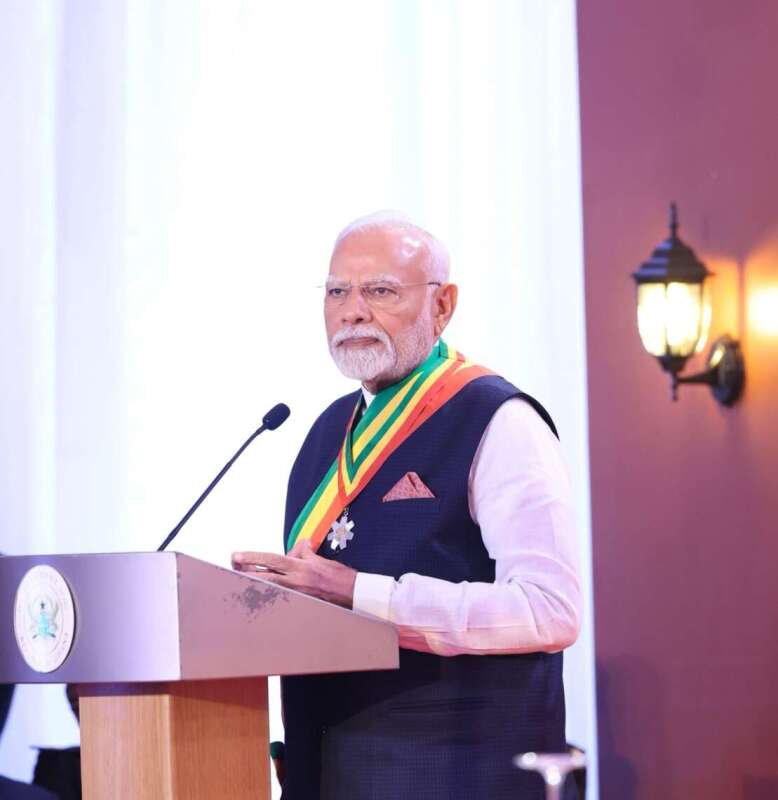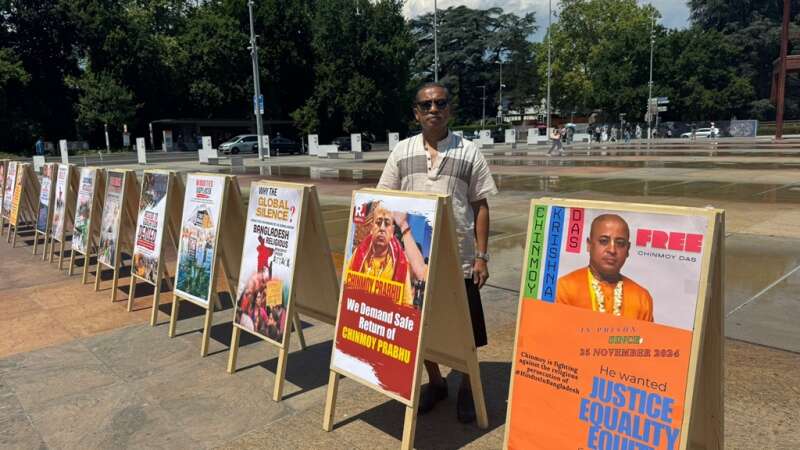Qualitative interviews with Sikhs in the UK, US, and Canada reveal the challenges of “forced” conversions faced by the community…reports Asian Lite News
Concerns over ‘forced’ conversions initiated by predatory Muslim males, who ‘groom’ Sikh ‘girls’ into converting to Islam against their will, have resurfaced in Europe, especially in Britain. This pattern first emerged in late 1980s and early 1990s and has been occurring since then, within the Sikh-Muslim social fabric in the West.
In Britain several cases have demonstrated how Muslim men are deliberately deceiving and tricking vulnerable Sikh females into Islam. While the “Kaur to Khan” project might sound sensational, it is a prominent source of anxiety within the Sikh diasporic community.
Empirical data generated by a series of qualitative interviews with Sikhs in the UK, US, and Canada, captures the challenges faced by the community by these “forced” conversions. Sikh elders have concerns over the preservation of community along with wider anxieties around interfaith marriage.
Muslim men have allegedly been disguising themselves as Sikhs as a way to lure in vulnerable girls from the Sikh community. Younger Muslims are known to target Sikh girls on university campuses across Britain; even going so far as to donning Sikh religious symbols like the Kara (a steel or cast iron bangle worn by male Sikhs) or and even drinking to fool the girls into thinking that he is Indian/Sikh. Once a relationship (often sexual) is established, it is purported that the Muslim man reveals his true identity and forces the Sikh girl to convert by blackmailing her with indecent pictures, thus leaving the girl at risk of “shaming” her family. In most cases the girl is then beaten up or taken to Pakistan to work as a prostitute; no one knows of her whereabouts. Although various modifications to this pattern have appeared, the threat of Muslim men luring and converting Sikh women is well established.
The disguise, the phases of entrapment and the ‘grooming’ process combine to construct the specific agenda in practice by Muslims in their ‘mission’ to convert Sikh ‘girls.
According to Marie Macey, of the University of Bradford, “In recent years, the organisation of religious and political extremism has taken place both on and off educational premises. This presentation of political ideology under the guise of religious orthodoxy attempts to recruit and mobilise young men to become perpetrators of violence. For example, leaflets circulated in Bradford exhorting young Muslim men to rape Sikh women and murder homosexuals are traceable to extremist Islamic organisations operating across the UK,…” (Class, Gender and Religious Influences on Changing Patterns of Pakistani Muslim Male Violence in Bradford, 1999).
In some instances the Sikh girls are not just converted but also radicalised to such an extent that they become willing participants in radical Islamic movements. In 2018 the case of 18-year-old British-Sikh girl Sandeep Samra, who converted to Islam and tried to travel to Syria and join the Islamic State terror network made headlines.
In fear the Sikh communities in Britain have resorted to awareness campaigns about Muslim men threatening the future of Sikh communities by exerting control over Sikh women. These include disseminating “warning” leaflets to the Sikh community, awareness talks and film screenings on university campuses and at gurdwaras and television documentaries of Sikh victims telling their stories.
NRI Sikhs and nd members of the Sikh Council of UK, an organisation involved in religious, social and cultural matters related to Sikhism, have from time to time brought to the notice of the Akal Takht has taken a serious view of reports of Sikh girls falling victim to ‘love jihad’ an act that involves ‘charming’ Pakistani youths attempting to impress, marry and convert non-Muslim girls to Islam. The reports also referred to these girls being exploited in various ways by their husbands and in-laws. Some of these girls were later dumped by their husbands in Pakistan, where the in-laws have been using them as domestic help. “The Sikh Council has rescued some of the victims (girls) and brought them back to their parents,” the Akal Takht Jathedar Giani Gurbachan Singh said. When asked how many such cases existed in the UK or England, he replied, “There could be hundreds.”
Recently on 22 February, 2024 a Sikh woman of Indian origin from Germany married a Pakistani man. After exchanging vows with Ali Arsalan, Jaspreet Kaur was converted to Islam and is now known as Zainab,as confirmed by the certificate of acceptance of Islam issued by the Jamia Hanafia, Sialkot. Incidentally over 2,000 non-Muslims have ‘embraced’ Islam at Sialkot’s Jamia Hanafia.

In the UK, Islamic Supremacist groups such as Al-Majiroun are known to engage in aggressive proselytising activities and have been accused of spreading leaflets in universities urging Muslim students to target Sikh girls for ‘conversion.’
Among Muslims and Sikhs in Britain today there are several areas of contestation that have the potential to turn into serious conflict.
Muslim population of the UK is several times larger than the Sikh population. Further some localities, such as Southall, Slough, West Bromwich, Handsworth, and Hillingdon, traditionally associated with the Sikh community, have experienced an increase in Muslim settlement. This rapid demographic change has led to intense competition over resources such as housing, education, social services and social security.
Lately Muslim and Sikh youth have been engaged in serious acts of violence in a number of cities/localities across UK and Europe. This mobilisation has been conducted over allegations of ‘forced conversions’ of Sikh girls by Muslim boys.
In the latest manifestation of the hate between the Sikh and Muslim communities in the West, an online conflict is underway between Sikhs and Muslims in Europe. The matter started some weeks ago, when a Sikh posted hateful comments about Muslims over video platform TikTok from the US or UK. The video was responded to by attacks on Sikhs by Muslim uploaders of Pakistani origin. Pakistani TikToker ‘Hassan Gondal Dogar’ based in Berlin, Germany has particularly been very vocal in criticising Sikh, with negative references about the Khalistan and about Sikh girls. Reacting to Gondal’s provocative remarks, Sikh TikToker by account name Mannaphagwara @manna_phagwara, hailing from Phagwara in Punjab and currently residing in Savigliano, Cuneo, Italy, has committed to travel to Berlin and see face to face with Gondal. Apparently now Sikh youth from different parts of Europe, including Italy, Spain, France, Belgium, Netherlands etc. are planning to travel to Berlin for the Gondal – Mannaphagwara face off.
It is evident that in some localities in Europe there are serious underlying tensions between some segments of the Muslim and Sikh communities, especially the youth. This contestation between Sikh and Muslims over resources and especially over conversion is increasingly leading to racialisation of the diasporic communities. There is already some resentment in the public sphere among Sikh groups that public sector resources are being disproportionately allocated to deal with Muslim issues because of the Islamic radicalisation security threat, at the expense and marginalisation of other communities.
It is troublesome that in Britain and in the wider West today, religion is recognised as the core marker of minority identity for Sikhs and Muslims. Since the late 1990s there has been a distinct shift from ‘ethnic’ to ‘religious identification as either Sikh or Muslim. This fact is supported by research which has identified the centrality of religious institutions, especially places of worship, in the daily lives of minority communities. Given that the profile of both Muslim and Sikh communities in the West is very young, their radicalisation should be a matter of concern for the governments.
ALSO READ: Anti-Semitism Peaks
ALSO READ: Biden condemns anti-Semitism, backs Israel














